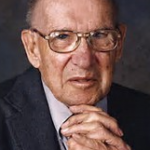Aims
Consider what the functions of management are
Discuss what makes a good manager
Lead-in
- To what extent is effective management something you are born with, as opposed to a set of skills that can be taught?
- Which business leaders do you admire for their managerial skills? What are these skills?
- Do managers have a good reputation in your country? Or are they made fun of in jokes, cartoons and television series? Ifso, why do you think this is?
- Which of the five famous managers below do you find the most interesting and impressive?
to f
Akio Morita co-founded a company in Tokyo in 1946, and later changed its name to Sony. He moved to the US, where he had the original ideas for the Walkman and the video cassette recorder. Sony acquired music and film companies, and developed video games.
acquire : to buy somthing 習得する to acquire an English、獲得する : to acqure land

While Jack Welch was Chief Executive Officer (CEO) of General Electric in the 1980s and 1990s, its market value increased from $14 billion to more than $410 billion. He fired 10% of the company’s managers each year.

Steve Jobs was first the co-founder and later the CEO of Apple. He was fired from his own company (!) in 1985, and co-founded Pixar Animation Studios, but rejoined Apple in 1997, and helped develop the iPod and the iPhone.

In 1998, Meg Whitman joined a start-up company called eBay in Silicon Valley as President and CEO. She resigned ten years later, when it was a hugely successful business, planning to run for Governor of California.
resign vs retire resign : quit a job, retire : to finish a career

Carlos Ghosn, born in Brazil, but a French and Lebanese citizen, became the CEO of the Nissan car company in 2001. In 2005, he also became CEO of Renault. At Nissan, he converted huge debts into huge profits.
CEO vs President : 1st CEO 2nd President
Listening: What makes a good manager? >1.2 >1.3
Listen to two MBA (Master of Business Administration) students at the Judge Business School at Cambridge University talking about management.
Who says the things about managers in the table below – Carlo (the first speaker) or Olga (the second)?
Carlo de Stefanis (from Italy)
I heard like this: so manager should push the company goal maximize value for shareholders and so on, but on the other hand you should accomplish also the personal goals and objective of the people the manage, for instance , helping younger professionals to develop and understanding inspition over everybody in there team and trying match goals and company and even helping people to develop in their team.
Answer: … so managers should pursue the company goal, maximize value for shareholders, and so on, but the other hand they should accomplish also the personal goals and objective of the people they manage, for instance helping young professionals to develop, and understanding the expectation of everybody in their team, and trying to match goals of the company and even helping people to develop in their team.
(pəˈsjuː)
Olga Babakina (from Russia)
I heard like this : I believe that good manager actually don’t manage anybody. And good manager basiclly there are good executive office strategies. Because company stay those fans successful ??? a lot of business plans and strategies somewhere in the report of faus? but those company’s faus are manager executing those plans. so basiclly knowledge be a good manager. you have to know , good manager have to know how to lead people , how to motivate people , and how to make sure your meeting target…
Answer : I belive that good managers actually don’t manage anybody, and good managers basically they are good executors of strategies, because the companies today, those ones who are successful, are not those who have lots of business plans and strategies somewhere in the reports and files, but those companies who have managers, executors of plans, so basically in order to be a good manager you have to know how to lead people, how to motivate people, and how to make sure that you are meeting your targets.
| Carlo | Olga | |
| A good manager should: | ||
| 1. follow the company’s goals | 1 | |
| 2. help subordinates to accomplish their own goals and objectives | 1 | |
| 3. help young colleagues to develop | 1 | |
| 4. know how to lead people | 1 | |
| 5. know how to motivate people | 1 | |
| 6. make a maximum profit for the owners (the shareholders) | 1 | |
| 7. meet the targets they have been set | 1 | |
| 8. successfully execute plans and strategies | 1 |
subordinate : 部下
Discussion: What makes a good manager?
What do you think are the three most important characteristics of a good manager? Are there any qualities or characteristics you would add to the one mentioned by the MBA students?

Reading: What is management?
Read the text summarizing the different functions of manatemant. Which of the qualities mentioned in the Listening exercise do you think are particularly necessary for the five tasks described by Peter Drucker?
Management is important. The success or failure of companies, public sector institutions and services, no-for-profit organizations, sports teams, and so on, often depends on the quality of their managers. But what do managers do? One well-known classification of the tasks of a manager comes from Peter Drucker. Drucker was an American business professor and consultant who is often called things like ‘The Father of Modern Management’.
Drucker suggested that the work of a manager can be divided into five tasks: planning (setting objectives), organizing, integrating (motivating and communicating), measuring performance, and developing people.
First of all, senior managers and directors set objectives, and decide how their organization can achieve or accomplish them. This involves developing strategies, plans and precise tactics, and allocating resources of people and money.
precise(prɪˈsaɪs) : strictly correct in amount or value: a precise sum.
tactics
Secondly, managers organize. They analyse and classify the activities of the organization and the relations among them. They divide the work into manageable activities and then into individual tasks. They select people to perform these tasks.
Thirdly, managers practise the social skills of motivation and communication. They also have to communicate objectives to the people responsible for attaining them. They have to make the people who are responsible for performing individual tasks form teams. They make decisions about pay and promotion. As well as organizing and supervising the work of their subordinates, they have to work with people in other areas and functions.
Fourthly, managers have to measure the performance of their staff, to see whether the objectives or targets set for the organization as a whole and for each individual member of it are being achieved.
Lastly, managers develop people – both their subordinates and themselves.
A company’s top managers also have to consider the future, and modify or change the organization’s objectives when necessary, and introduce the innovations that will allow the business to continue. Top managers also have to manage a business’s relations with customers, suppliers, distributors, bankers, investors, neighbouring communities, public authorities, and so on, as well as deal with any crisis that arises.
Although the tasks of a manager can be analysed and classified in this fashion, management is not entirely scientific. There are management skills that have to be learnt, but management is also a human skill. Some people will be unable to put management techniques into practice. Others will have lots of tecnique, but few good ideas. Excellent managers are quite rare.
Vocabulary
fashion : 方法 in this fashion = in this way
except : ~を除いて Nobody visits my website except you. (omg)
form : V , to make something
plural countable noun
singular uncountable noun
objective = aim = goal
1 Match up the following words and definitions.
| 1. consultant | A. a plan for achieving success |
| 2. crisis | B. a new idea or method |
| 3. innovation | C. a person with a less important position in an organization |
| 4. objective (noun) | D. a person who provides expert advice to company |
| 5. promotion | E. a situation of danger or difficulty |
| 6. public sector | F. something you plan to do or achieve |
| 7. strategy | G. the section of the economy under goverment control |
| 8. subordinate | H. when someone is raised to a higher or more important position |
1-d, 2-e, 3-b, 4-f, 5-h, 6-g, 7-a, 8-c
2 The text contains a number of common verb-noun combinations. Use the word combinations in the box to complete the sentences below.
| allocate resources deal with crises make decisions perform tasks measure performance set objectives supervise subordinates |
- After an organization has ______ ______ it has to make sure that it achieves them.
- Managers have to find the best way to _______ all the human, physical and capital _______ available to them.
- Some people _______ _______ better on their own while others work better in teams.
- Managers _______ the work of their _______ and try to develop their abilities.
- Managers _______ the _______ of their staff to see whether they are reaching their targets.
- Top managers have to be prepared to _______ _______ _______ if they occur and then have to _______ quick _______.
Answer : 1.set objectives 2. allocate resources 3. perform tasks 4. supervise subordinates 5. measure performance 6. deal with crises, make decisions
crises (kráɪsiz) : crisisの複数形
Case study : Selectin a Chief Operating Officer
Three companies are looking for a senior manager – a Chief Operating Officer who will be responsible for managing the company’s day-to-day operations, and making sure that all operations are efficient and effective.
・efficient vs effective : Being effective is about doing the right things, while being efficient is about doing things right. efficient(ɪfíʃənt) means 効率的な in Japanese, while effective (ɪféktɪv) means 効果的な in Japanese.
ef) affective(æféktɪv) : 感情的な、情緒的な、情動の
| Company A is cigarette manufacturer that has to modernize its production systems in order to become profitable, in an industry that has an increasingly bad reputation. | Company B is a software developer that employs a lot of young, creative, talented and rather undisciplined people. | Company C is a a private television channel whose objective is to broadcast, programmes that get as big an audience as possible, in order to maximize advertising revenue. |
reputation : 評判
// so far 2017/09/29, next time start below
Which of the following candidates might be the most suitable for the positions on page 13? Here are some extraces from their letters.
| Candidate 1 | My skills involve helping businesses achieve their objectives. Throughout my carrer I have ensured that my subordinates successfully executed the strategies developed by senior management, delivered results and maximized revenue. |
| Candidate 2 | I see my main skills as being able to communicate with and motivate people, to help them develop and accomplish their objectives, while also working effectively in teams. |
| Candidate 3 | At this stage in my career, I see myself in a challenging new position that involves setting objectives and deciding how the organization can achieve them.I would then concentrate on measuring the performances of the staff. |
| Candidate 4 | 4My career demonstrates an ability to analyse problems, find solutions and implement them. I also have strong communication skills and experience in explaining difficult decisions to employees, investors, journalists, and so on. |
Writing
Imagine you work for a recruitment agency or a headhunting firm. Write an email of 50-100 words to your boss recommending your choice of candidates for the positions above and outlining the reasons.
—
Others I studied:
awful (ˈɔːfʊl)= very bad
I want to ask :
but those companies who have managers, —> sound of Russian: why “who” is used ? companies are not person.